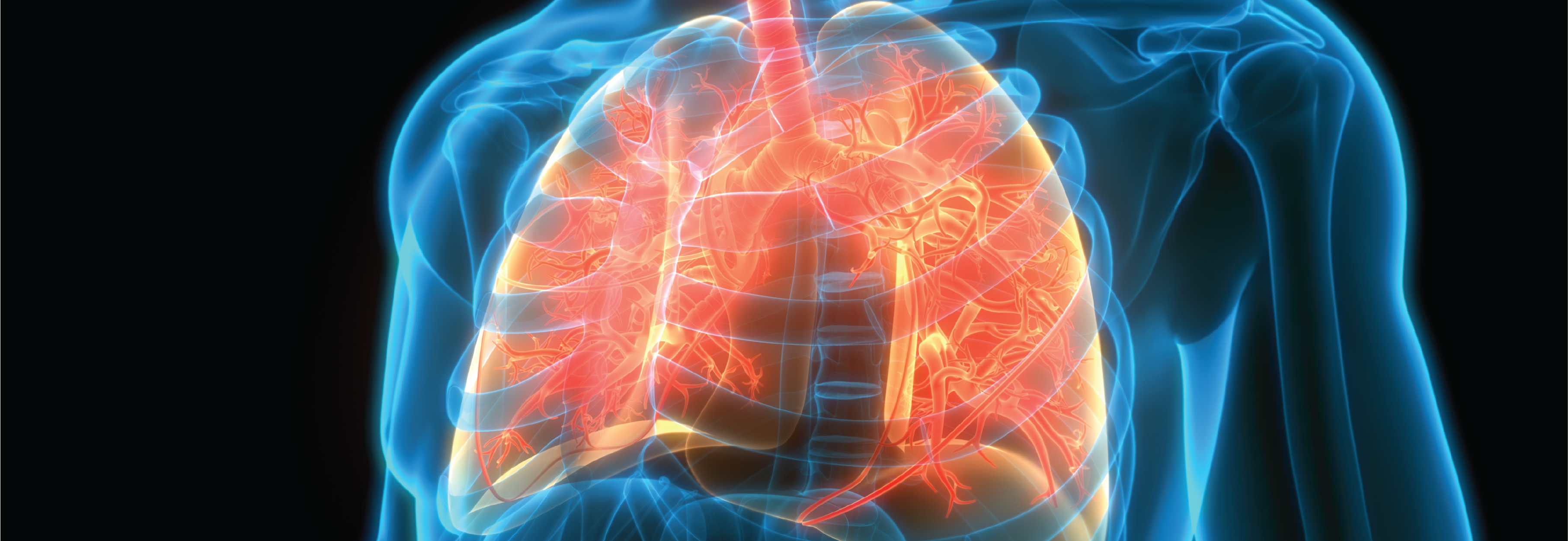A 62-year-old man with pulmonary fibrosis began to experience severe dyspnea two years after the diagnosis. His prolonged respiratory decline led to a lung transplant recommendation.
HIV-positive since 2009, the patient was also being treated for an esophageal motility disorder related to scleroderma lung disease. The condition can trigger esophageal reflux, which is a risk for respiratory infection and a concern among transplant pulmonologists. Both the HIV diagnosis and the scleroderma were important considerations in transplant eligibility.
Following an assessment at a medical center in another state, the patient was turned down for transplant primarily because of the HIV infection. Undertaking his own research, he contacted the Duke Lung Transplant Program.
Question: Given the complexities of the patient’s condition, what options could the Duke transplant team offer?
Answer: After a comprehensive review of potential risk factors, including reflux, the Duke lung transplant team accepted the patient on the waitlist. In June 2021, he became the first HIV-positive individual to receive a lung transplant in the Duke program.
Federal HOPE Act guidelines require medical centers to complete five transplants for HIV-positive recipients before permitting a program to accept an organ for transplant from an HIV-positive donor. John M. Reynolds, MD, medical director of the lung transplant program, says the successful procedure is the first step toward expanded future use of HIV-positive lungs.
Katie A. Young, MD, the patient’s transplant pulmonologist, says the team accepted the patient with plans to assess and treat the scleroderma-related reflux risk after the procedure, if necessary.
To accelerate the possibility of transplant, the patient opted to accept organs infected with Hepatitis B (HBV) or C. The organ he received was HBV-positive. The patient was already using the medication bictegravir/emtricitabine/tenofovir alafenamide, sold under the brand name Biktarvy (Gilead, Foster City, CA), as a fixed-dose combination antiretroviral medication to treat HIV/AIDS. The drug is also effective for HBV; no additional medications are required to manage the HBV.
Following an uneventful recovery from the bilateral procedure, the patient returned to Duke six months later to evaluate the motility disorder. When the reflux risk was determined to be severe, the patient underwent fundoplication performed by Jacob Klapper, MD, a Duke gastrointestinal and thoracic surgeon.
The patient has since resumed personal and professional routines following the transplant, including regular physical activities, Young says.
Patients with HIV are usually good candidates for transplant, specialists say, because they must comply with daily medication and care regimens required by the virus. A record of consistent, effective management of the infection can be a useful indicator of the discipline required for a post-transplant lifestyle.
A few months after the initial transplant of a non-HIV lung into an HIV-positive patients, the Duke team completed a second bilateral procedure. The patient is recovering and participating in pulmonary rehabilitation.



